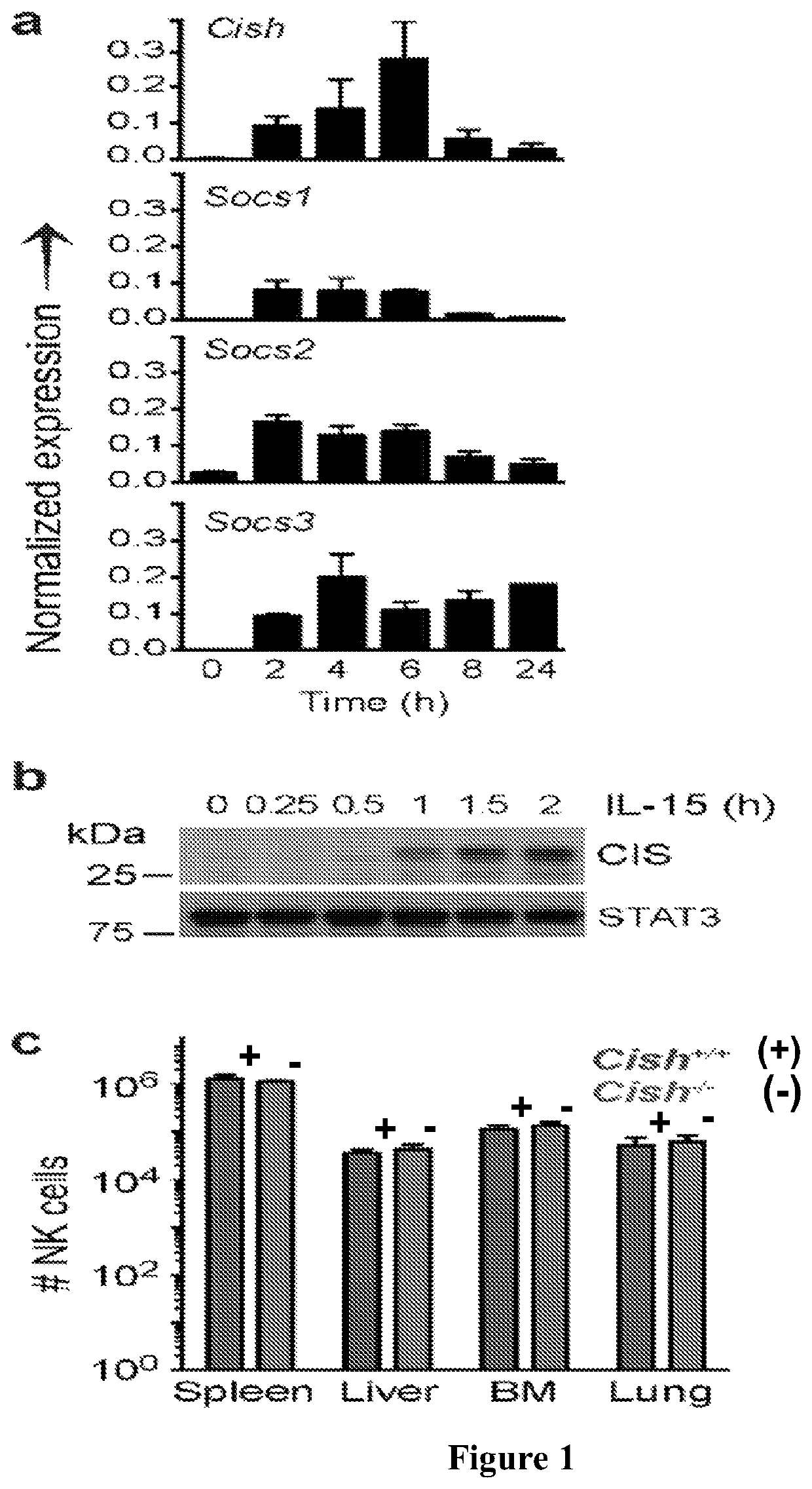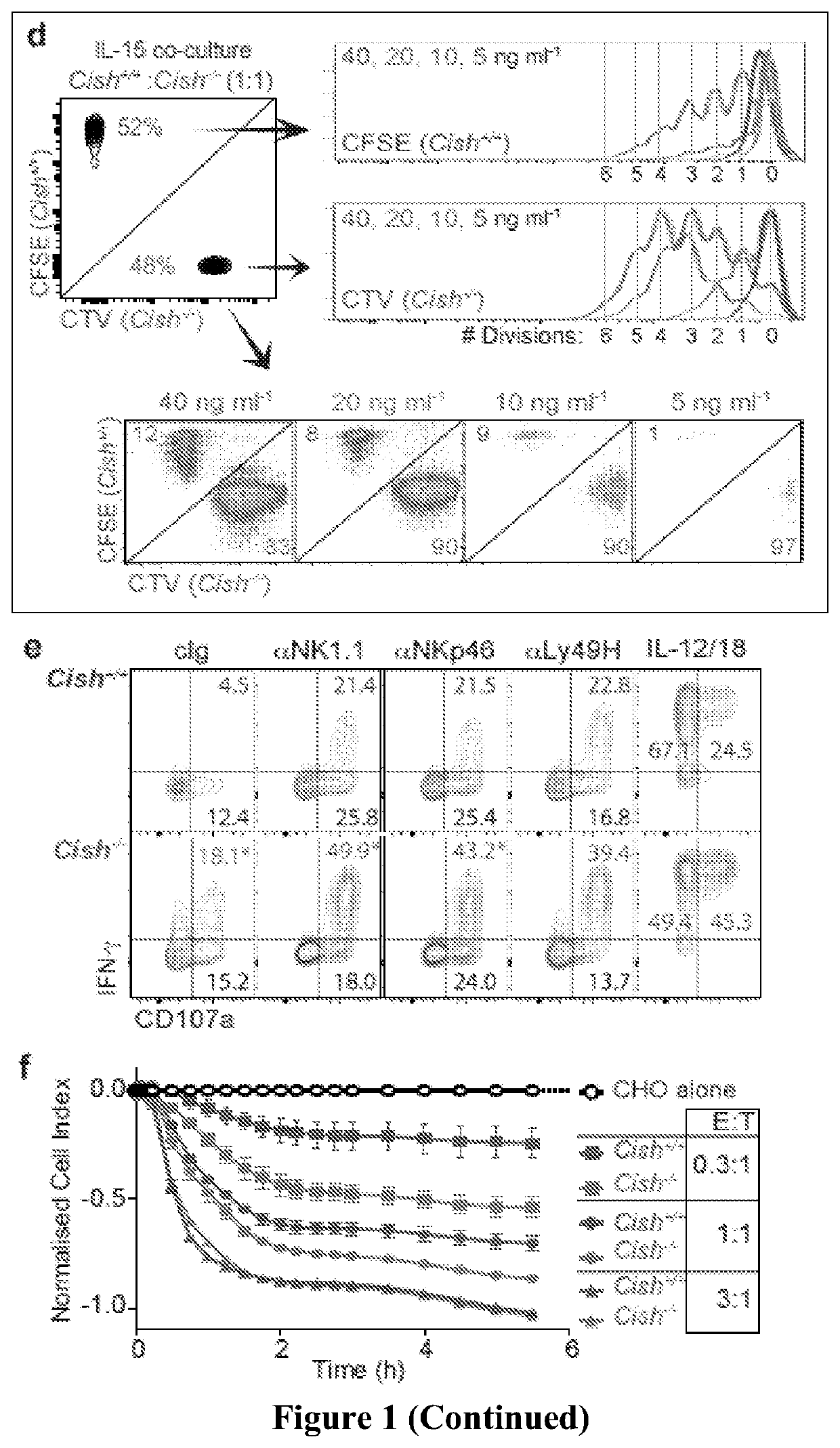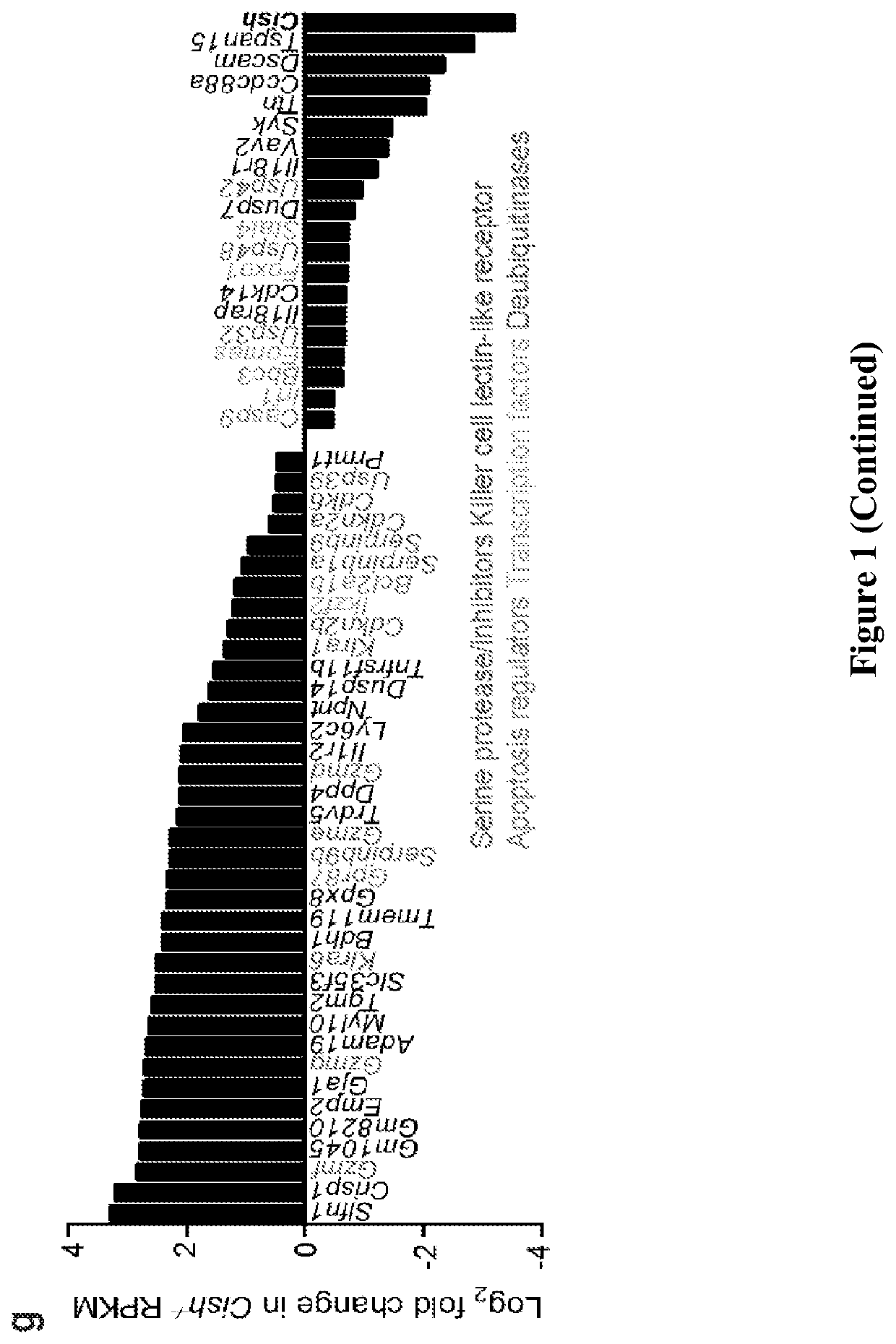Inhibition of cytokine-induced SH2 protein in NK cells
a technology of cytokine-induced sh2 and cytokine, which is applied in the field of therapeutic agents, can solve the problems of limiting the effectiveness of nk cell-mediated responses in the context of a variety of cancers and infections, and nk cell activation, and achieves enhanced turnover and differentiation, increased pro-inflammatory cytokines, and heightened response to il-15.
- Summary
- Abstract
- Description
- Claims
- Application Information
AI Technical Summary
Benefits of technology
Problems solved by technology
Method used
Image
Examples
example 1
and Methods
Mice
[0269]Cish− / − were generously provided by Prof. James Ihle and Dr Evan Parganas at St. Jude Children's Research Hospital, Memphis USA and were maintained on a C57BL / 6 background. Cish+ / + refers to C57BL / 6 wild-type control mice. Rosa26-CreERT2 (TaconicArtemis), Socs3-loxP (Croker et al., 2003), Ifng− / −Socs1− / − (Alexander et al., 1999) and Ncr1-iCre (Narni-Mancinelli et al., 2011) mice have been described previously. Male and female mice were used between the ages of 6-14 weeks. All mice were bred and maintained at the Walter and Eliza Hall Institute. Animal experiments followed the National Health and Medical Research Council (NHMRC) Code of Practice for the Care and Use of Animals for Scientific Purposes guidelines and were approved by the Walter and Eliza Hall Institute Animal Ethics Committee or the QIMR Berghofer Medical Research Institute Animal Ethics Committee.
Purification and Culture of NK Cells
[0270]Murine natural killer cells were harvested from various orga...
example 2
uces Expression of SOCS Genes, Including CIS, in NK Cells
[0295]To date, there has been a great deal of interest in understanding the inhibitory signals that curb NK cell responses, but yet still do not understand how intracellular IL-15 signalling is switched off. Members of the suppressor of cytokine signalling (SOCS) gene family are STAT5 response genes and are often induced to limit the extent of cytokine receptor signalling as part of a classic negative feedback system. In order to investigate which SOCS proteins might regulate IL-15 signalling and hence, NK cell development and function, the inventors first profiled IL-15-induced SOCS expression in cultured NK cells. Cish, Socs1, Socs2 and Socs3 mRNA were induced in NK cells within 2 h of IL-15 treatment, with the early and transient induction of Cish typifying Socs induction by its target cytokine (FIG. 1a). Consistent with the rapid induction of mRNA in saturating concentrations of IL-15, CIS protein was detected in NK cell l...
example 3
NK Cells are Hyper-Sensitive to IL-15
[0296]To investigate the physiological role of CIS in IL-15 signalling, the inventors utilized a germline Cish-deleted mouse (Cish− / −) (Palmer et al., 2015), first confirming that Cish mRNA and protein were absent from NK cells FIG. 5a). Cish-null mice were healthy, fertile and did not present with any phenotypic abnormality when aged to 10 months. The frequency and function of haematopoietic cells appeared normal, including that of conventional CD4+ and CD8+ T cells9, regulatory T cells and type 2 innate lymphoid cells (ILC2) (FIG. 5b-g). NK cells also developed normally in Cish− / − mice (FIG. 1c, FIG. 5b), as was the case in Socs1 and Socs3 single or doubly-deficient mice FIG. 6a). However, in contrast to Socs1, or Socs3-deficient NK cells, Cish− / − NK cells displayed a profound hyper-proliferation in response to IL-15 in vitro (FIG. 1d, FIG. 6b). When Cish− / − and control C57BL / 6 NK cells (Cish+ / +) were co-cultured 1:1 in a titration of IL-15, Ci...
PUM
 Login to View More
Login to View More Abstract
Description
Claims
Application Information
 Login to View More
Login to View More - R&D
- Intellectual Property
- Life Sciences
- Materials
- Tech Scout
- Unparalleled Data Quality
- Higher Quality Content
- 60% Fewer Hallucinations
Browse by: Latest US Patents, China's latest patents, Technical Efficacy Thesaurus, Application Domain, Technology Topic, Popular Technical Reports.
© 2025 PatSnap. All rights reserved.Legal|Privacy policy|Modern Slavery Act Transparency Statement|Sitemap|About US| Contact US: help@patsnap.com



